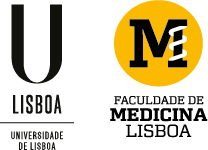Maria Teresa Tenório Figueiredo Carvalho Gonçalves, completed her medical degree in 1988 at Lisbon School of Medicine. During her medical internship at HSM (1989-1990) and at the invitation of Prof. David Ferreira she did internship at the Gulbenkian Science Institute and at the Histology Institute of tLisbon School of Medicine. At this time she also began teaching the subjects of Cell Biology and Histology and Embryology at this faculty as a Monitor. In 1991 she opted for a career as a university teacher having abandoned clinical medicine and was hired as an Assistant. She defended her Pedagogical Aptitude and Scientific Capacity exams in 1995 and her PhD in Medicine, on Cellular and Molecular Biology specialty, in 2001. Since then she has been continuously connected to the teaching of Molecular and Cellular Biology at FMUL.
She is currently Assistant Professor at FMUL, teaching Molecular Cell Biology (co-regent) and Oncobiology at the MIM and Molecular and Cellular Biology at the LCN (regent). She has also supervised several laboratory internships of national and international students from different exchange programs, as well as Master's and PhD students.
Regarding research activity started at the Gulbenkian Institute of Science and the Institute of Histology of Lisbon School of Medicine under the guidance of Prof. Carmo Fonseca, she began to study the mechanisms responsible for mRNA biogenesis to better understand the diseases caused by errors affecting these processes, through a multidisciplinary approach that combined in vivo cell microscopy, computational modeling, molecular biology, biochemistry and bioinformatics, being involved in several projects associated with this theme. She is currently a senior researcher in the MCFonseca group of the Institute of Molecular Medicine and is involved in the study of alterations in mRNA biogenesis affecting human cardiovascular diseases and also in the development of cellular models derived from iPSCs, induced pluripotent cells, in particular models that allow the study of heart diseases of genetic cause, such as Hypertrophic Cardiomyopathy and Dilated Cardiomyopathy and develop new therapeutic approaches for these diseases.



